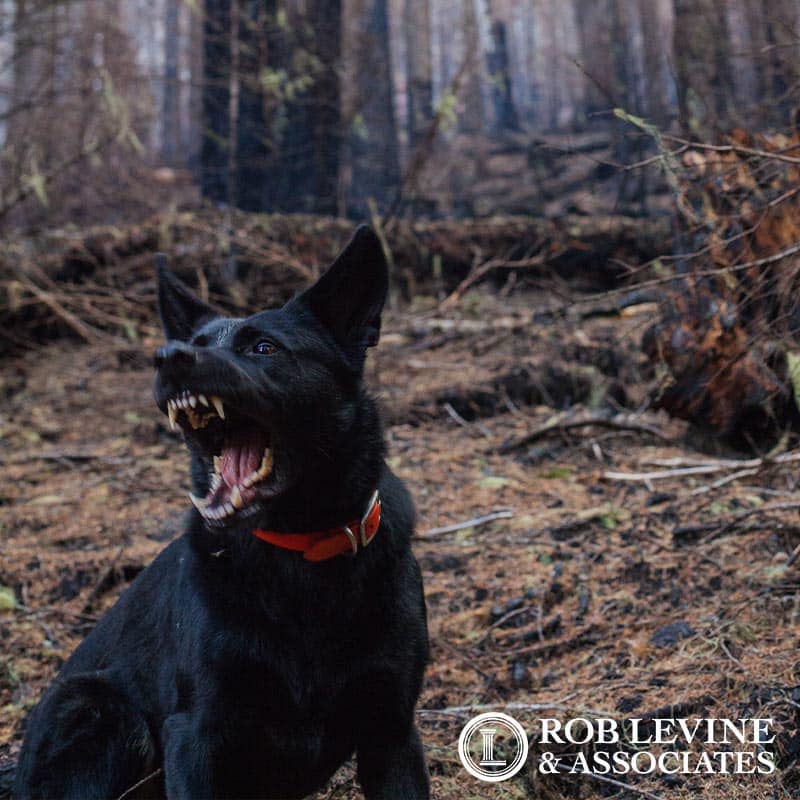What Is a Dog Bite Worth?
If you or a loved one has been attacked and bitten by a dog, you may wonder – What is it worth? Can I sue? And, if so – who?
Yes, dog bites are compensable injuries under the law. The best way to protect yourself and your loved ones is to consult with competent legal counsel as soon as possible after an incident.
Statistics Show That Dogs Do Bite
In 2019 alone, there were 17,866 dog bite claims in the U.S., totaling $802 million in total claim value, up to $129 million from 2018 according to a 2019 study compiled by the American Veterinary Medical Association (AVMA), the Insurance Information Institute and State Farm®.
New York, New Hampshire, and Florida are the states with the highest average cost per dog bite claim. While California, Florida, and Texas had the highest number of dog bite claims in 2019. Rhode Island ranked 26th with 72 total claims and an average compensation rate of $43,567.80.
A table with all 50 states can be found here: https://public.tableau.com/profile/insuranceinformationinstitute#!/vizhome/DogBitesByState/Dashboard1
The average cost per dog bite claim in the nation is $43,653.
While most dogs are not likely to bite anyone, even a quiet and unassuming dog can turn on you quickly if provoked or if it feels threatened. Statistics show that dog bite claims are more common and far more costly than you think. In 2019, there were 17,866 dog bite claims in the U.S.
Rhode Island Law Lets You Bite Back
Under Rhode Island law, if a dog bite occurs off the owner’s property, the owner or keeper of the dog is strictly liable. What does this mean? It means, if you can establish that the dog was off the property or outside of a designated enclosure, then the owner has no defense. Sounds good, but interpretations of whether a dog is outside of an enclosure or not when a bite happens is often an area of contention when claims are presented.
When a bite occurs inside the owner or keeper’s property strict liability does not apply. All is not lost, however, as compensation can still be had under Rhode Island’s “one bite” rule. In these circumstances, the victim must establish that the dog had: 1. a history of aggression; 2. is a historically aggressive breed; 3. had bitten someone before; or 4. had a recent injury or surgery that made the dog out of sorts.
You’ve Been Bitten – Who Pays?
The most obvious person to seek compensation from for a dog bite is the owner or owners. Sounds good, but it may not get you far. Unfortunately, many dog owners do not have insurance coverage that will pay your claim.
The AVMA estimates that there are over 43 million dog-owning households in America, for which neither homeowners nor renters insurance is required like auto insurance is for drivers.
This is why it is very important to gather as many facts as possible after a dog bite happens. In most cases, compensation for dog bites comes from property insurance for the home where the dog lives. This means it is important to find out early on where the dog lives and who owns the property. While this may be relatively simple for free-standing, single-owner homes, it gets more complex when it’s a multi-family apartment complex or tenement home.
In these circumstances, it is important to gather as much evidence as possible about the owner of the property and whether the owner knew that the dog was on-site and in on-property incidents, was witness to any aggressive behavior. Many times, owners of the property will deny that they knew the dog was there and may even point to a lease that prohibits dogs from the property.
Evidence such as landlords that collect the rent in-person, with the dog barking in the apartment, helps to establish that the owner knew the dog was on-site and potentially aggressive. Another good source of information is to search the local police records for dog barking complaints. Also, some of the best information often comes from other tenants who saw the owner taking the dog for walks and in some cases may have been threatened or bitten by the same dog. If the neighbors saw the dog often, you can imply that the owner knew the dog was there too. Again, the best rule to follow is to gather your evidence early on.
You Own the Dog or Building – What Can You Do to Protect Yourself?
As you can see, dog bites can be expensive. If you have a dog, you should look into getting proper insurance coverage. A local insurance representative can help. Owners of dog-occupied property should protect themselves with sufficient levels of property insurance. Renters can protect themselves with insurance too.
How much is enough? Standard insurance policies can offer $100,000 in coverage. This may seem like plenty of coverage, but the value of a claim can rise very significantly if the bite is severe, particularly if it leaves permanent scarring or involves a child.
Only you can determine how much coverage you need. But, anyone that owns a dog or property should consider not only a standard insurance policy but also increasing their coverage by adding “umbrella” or excess coverage in order to protect their assets and home from potentially catastrophic dog bites.
Let Sleeping Dogs Lie
This age-old advice is certainly appropriate when you encounter an unknown dog on a neighbor’s porch. But, it doesn’t hold true when you are the victim of a dog bite. Knowing your rights and seeking legal advice as soon as possible after an incident happens will ensure that you and your loved ones are properly protected.
If you or someone you know has suffered an injury because of a dog bite, contact Rob Levine & Associates today. Our team can help you get the compensation you deserve.












